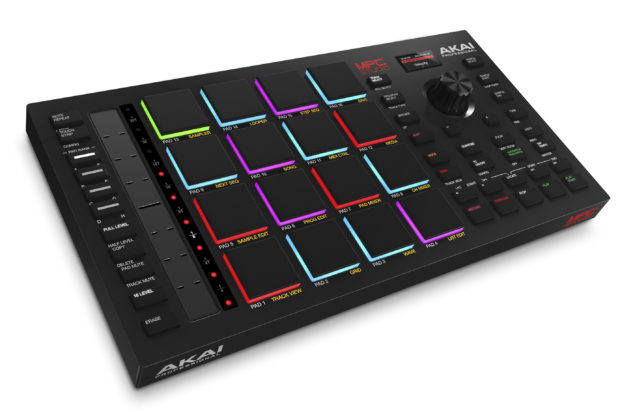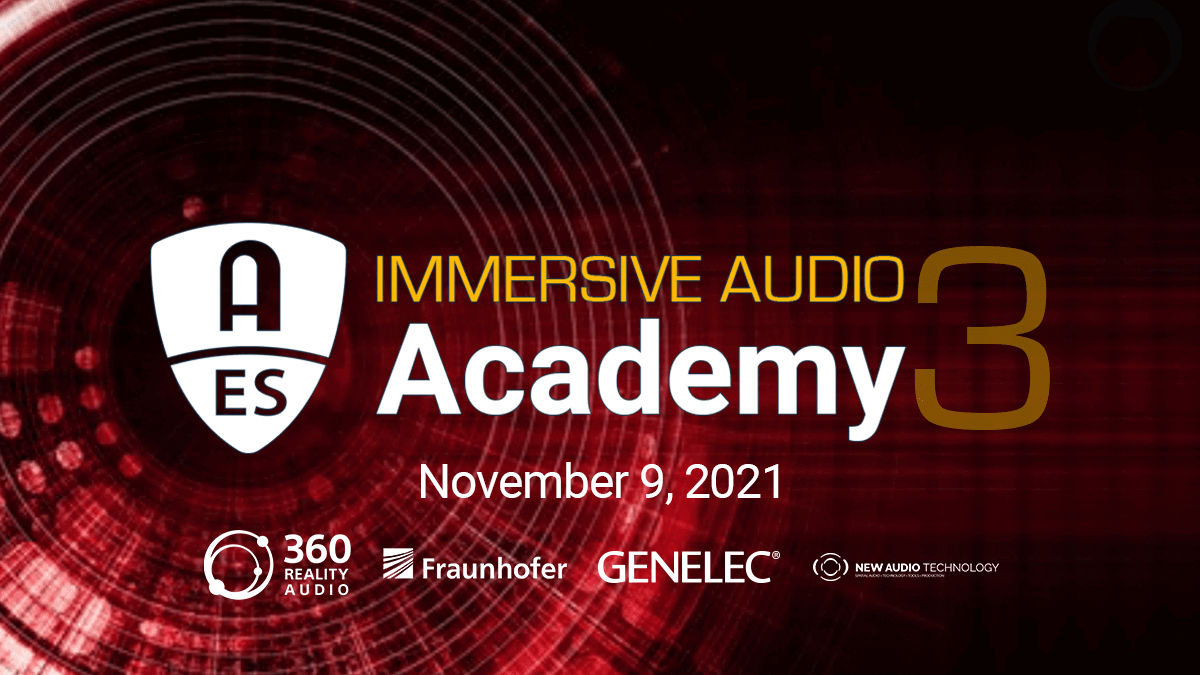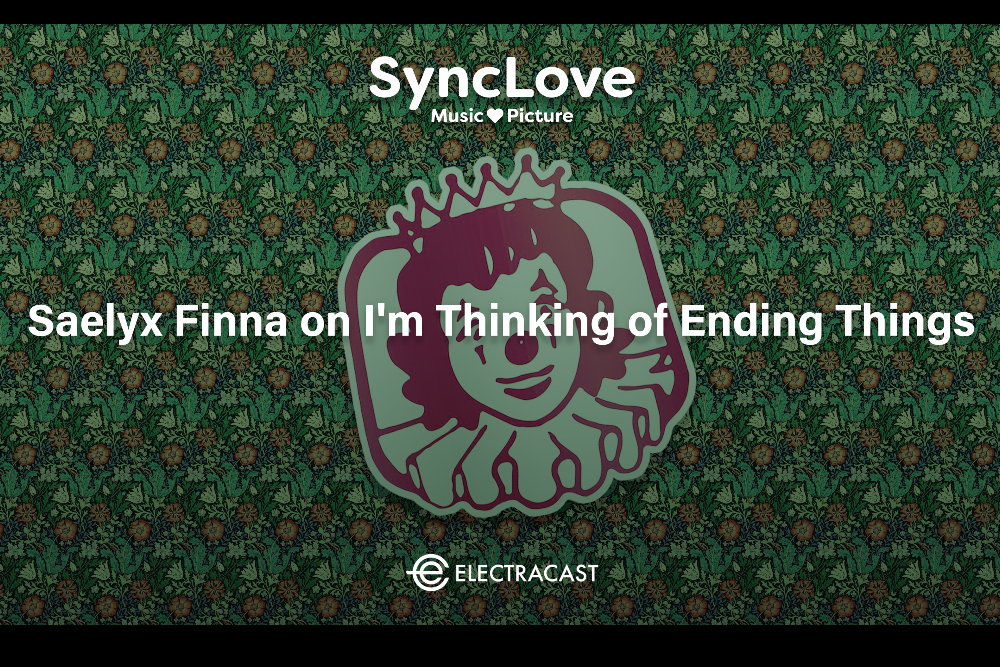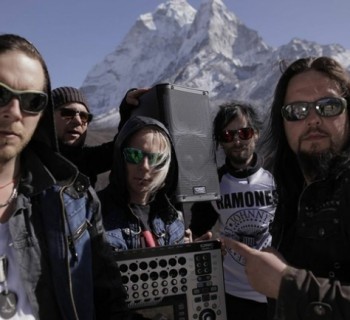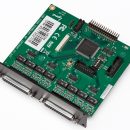The just released MPC Studio Controller from AKAI Professional is designed to seamlessly integrate with AKAI’s MPC2 digital audio workstation software. Unlike the more expensive MPC ONE sampler, which is the next step up in the in the MPC hardware sampler ecosystem, the MPC Studio is a controller––not a standalone hardware sampler––and requires a MAC or PC and preferably an audio interface to operate.
The MPC Studio Controller connects to your computer via USB and needs to be authorized with your iLok account. The MPC Studio Controller has full-size velocity and pressure sensitive RGB-backlit pads. The only connections on the back of the MPC Studio are two eighth-inch MIDI in and out (full-size MIDI breakout cables are included) for connecting a keyboard or other MIDI devices and a USB 2.0 port. The build quality of the MPC Studio Hardware Controller is, in a word, excellent.
The MPC Studio Controller is extremely well integrated with the included full license to MPC2 Studio software. It has enough buttons, knobs, and functionality to allow you access just about any parameter on the MPC2 Studio software without touching your mouse. Overall, the interface is very straightforward, and is designed for easy workflow.
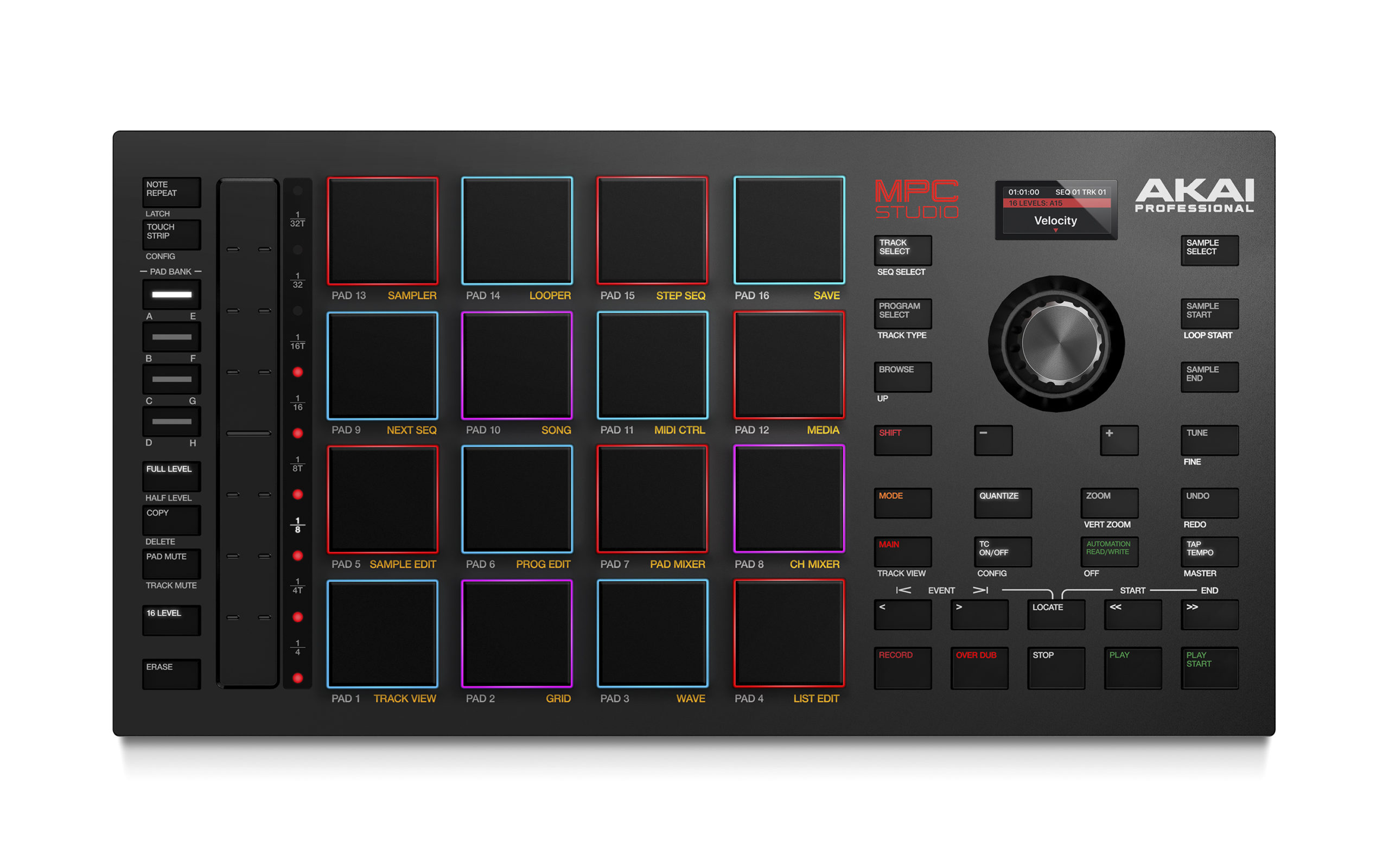
The first and most obvious tradeoff over the more expensive MPC standalone hardware samplers is the lack of a touch screen. Yes, you get a screen on the MPC Studio Controller (it is about the size of a postage stamp), and it has some obvious limitations because of its size. A rotary encoder located just below the screen helps you to dial in various parameters one at a time and displays them on the screen.
AKAI has replaced most of the functionality of the Q Link rotary encoders found in more expensive MPC units with a new multifunction velocity-sensitive touch strip. The multifunction touch strip on the MPC Studio Software is assignable and allows you to control pitch modifications, sustain, assign automation and many more parameters. Q Link and much more. The touch strip also allows you to set markers, control quantization, zoom in and out on, adjust starting and end points, change tuning, turn real time correction on and off and control many more parameters all without touching your mouse.
The included full license to MPC2 Software DAW for Mac and PC and allows you to work with up to 128 audio and MIDI tracks. The MPC 2 studio software features drag and drop capability, so you can drag samples from the browser onto your desktop. AKAI has included a wide selection of instructional videos and a free MPC Masterclass introduction to beat making including free downloadable templates accessible on the MPC website.
It’s important to point out that the MPC2 software is a Digital Audio Workstation (DAW). MPC2 can run as a VST plugin inside any host DAW. This makes it very accessible to those who want to use their own DAW software instead of MPC2. You can also utilize all the great synths in your own DAW by using MPC2 as a VST on a track in a compatible DAW.
The MPC Studio Controller comes with enough plugins and content to keep you creating beats for a long time. The included drum kits cover a wide range of musical styles. The MPC2 Studio software comes with Gold Dust, a new sample library which features brand-new kits exclusive to MPC Studio.
Once you take the time to get use to the interface it really does feel like an MPC. It is truly impressive how many buttons and controls AKAI has managed to pack into a small space. All the controls are easy to see, even in dim lighting, and the multi-color RGB backlighting on the pads help give you instant tactile feedback depending on what you are playing back through the software.
The MPC Studio Controller is not designed to replace the functionality of stand-alone samplers, but it will work for a lot of people who want to get started with beat making or just want a portable professional hardware controller for on the go that will easily fit in a backpack.
The MPC Studio Controller is available now for $269 MAP.
Find out more at akaipro.com.

